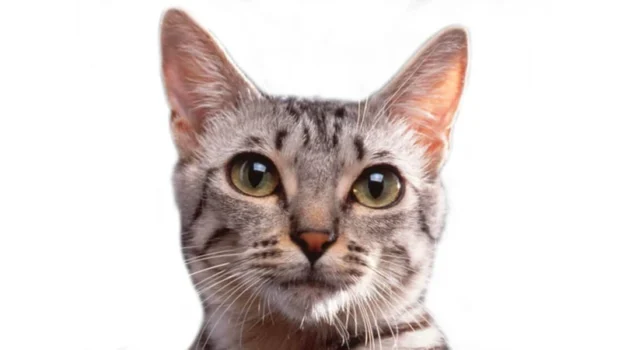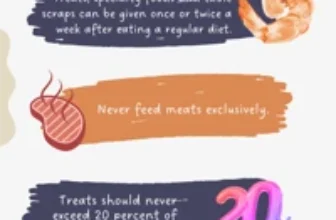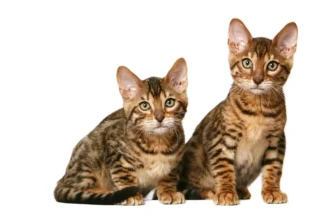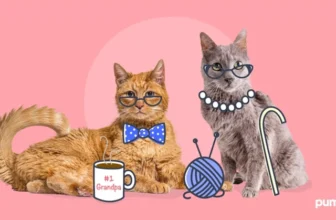As a California Spangled owner, you want to provide the best care possible for your feline companion. One crucial aspect of their overall health and well-being is their diet. But with so many options available, it can be overwhelming to know what is best for your pet. In this article, we’ll explore the importance of a balanced diet for your California Spangled and provide tips for creating a nutritionally sound diet that meets their unique needs.
What is a Balanced Diet?
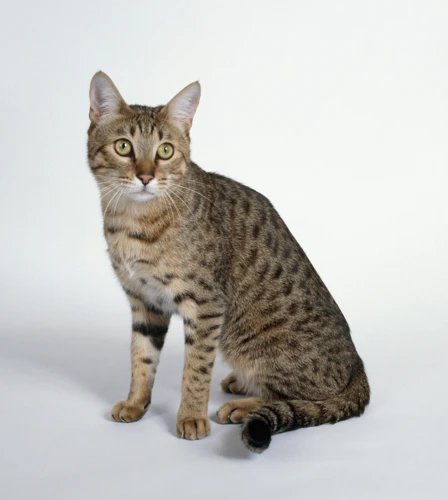
When it comes to caring for our beloved California Spangled cats, one of the most important aspects to consider is their diet. A balanced diet is crucial to their overall health and well-being, providing them with the necessary nutrients and energy to live a happy and healthy life. But what does it mean to have a balanced diet for your furry friend? In this section, we’ll dive into the key components of a balanced diet for California Spangled cats and why it’s important to keep them healthy and thriving.
Protein
Protein is a key component of a balanced diet for any cat, including the California Spangled. Proteins provide essential amino acids that help build and repair tissues in the body. They also help to maintain healthy muscle mass and promote a healthy immune system.
When selecting cat food, it’s important to pay attention to the protein source. Some high-quality protein sources in cat food include chicken, turkey, fish, and beef. Plant-based protein sources such as beans and peas may also be included in your cat’s diet.
It is recommended that cats consume a diet that is high in protein, with at least 25% of their diet coming from protein sources. To ensure that your California Spangled is getting enough protein, it is advised to consult with a veterinarian who can recommend a balanced diet tailored to your cat’s specific needs.
| Protein Source | Protein Content (per 100 grams) |
|---|---|
| Chicken | 31 grams |
| Turkey | 30 grams |
| Fish (Salmon) | 25 grams |
| Beef | 27 grams |
| Beans (Black beans) | 9 grams |
| Peas | 5 grams |
It’s important to note that while some cat food brands may advertise high protein contents, it’s crucial to pay attention to the quality of protein being used as well as the overall nutrient profile of the food. This ensures that your cat is receiving the necessary vitamins and minerals in addition to protein.
In some cases, cats can develop deficiencies if they do not get enough protein in their diet. If your California Spangled is experiencing any health issues, such as loss of appetite or muscle loss, it’s important to consult with a veterinarian who can diagnose the issue and recommend a proper course of action.
For more information about common nutritional deficiencies in California Spangled cats, check out our article on California Spangled Cat Deficiencies.
It’s crucial to provide your California Spangled with a balanced diet, including the necessary amount of protein to ensure their overall health and well-being. To learn more about nutrition for California Spangled cats, check out our article on Cali Spangled Nutrition.
Fat
Fat is an essential nutrient in a balanced diet for your California Spangled as it provides them with energy and supports various functions in their body. However, not all fats are created equal, and it’s crucial to provide your cat with the right type and amount of fat to maintain their health. Polyunsaturated fatty acids, such as omega-6 and omega-3, help reduce inflammation and support heart health in cats. On the other hand, saturated and trans fats can lead to obesity, high cholesterol, and other health problems.
Including the right amount of fat in your cat’s diet can help them maintain a healthy body weight, provide essential nutrients, and keep their coat shiny and healthy. But how much fat does your California Spangled need? Typically, an adult cat’s diet should consist of around 20-30% fat.
To ensure that your cat gets the right type and amount of fat in their diet, look for cat food that contains high-quality sources of fat, such as chicken, turkey, or fish. These foods are rich in polyunsaturated fatty acids and can help keep your cat healthy. You can also supplement their diet with fish oil or other omega-3 supplements.
However, it’s important to note that not all cats require the same amount of fat in their diet. Senior cats or those with health issues may benefit from a lower fat diet. If you’re unsure about how much fat to include in your cat’s diet, consult with a veterinarian to determine the best plan for your California Spangled.
Avoid feeding your cat with foods high in unhealthy fats, such as processed meats or foods with high levels of saturated fat. These foods can lead to obesity and other health issues in your California Spangled.
Fat is an essential nutrient in your California Spangled’s diet, but it’s crucial to provide them with the right amount of healthy fats. Look for high-quality cat food containing healthy sources of fat, supplement their diet with omega-3s, and consult with a veterinarian to determine the best plan for your cat’s unique nutritional needs. Remember to avoid foods high in unhealthy fats to keep your cat healthy and happy for years to come.
[Internal link: /california-spangled-cat-vitamins-supplements/]Carbohydrates
Including carbohydrates in a balanced diet for your California Spangled is also essential. Carbohydrates are an essential source of energy for your feline friend. They improve digestion and aid in maintaining a healthy weight. However, it is important to note that not all carbohydrates are created equal. While some are highly nutritious and essential, some are unnecessary and can cause harm.
It is best to focus on including complex carbohydrates in your cat’s diet, as they have a lower glycemic index and release energy more slowly than simple carbohydrates. Complex carbohydrates include fiber, which plays an important role in maintaining digestive health. This nutrient helps your cat maintain a healthy gut and prevent constipation.
Some excellent sources of complex carbohydrates for cats include sweet potatoes, pumpkin, and lentils. Grain-free cat foods are also good alternatives as they use ingredients such as peas, chickpeas, and beans rich in nutrients and fiber. However, it is important to read the labels carefully to ensure that the carbohydrates come from quality sources.
Here is a table of some cat-friendly carbohydrate sources:
| Carbohydrate Source | Benefits |
|---|---|
| Sweet potatoes | High in fiber, vitamins, and minerals |
| Pumpkin | High in fiber and aids in digestion |
| Brown rice | Good source of fiber and essential B vitamins |
| Lentils | High in fiber, protein, and complex carbohydrates |
| Peas | Rich in fiber, protein, and essential nutrients |
It is best to limit the amount of carbohydrates in your cat’s diet, as overconsumption can lead to obesity and other health issues. Aim for about 10% to 15% of your cat’s daily caloric intake to come from carbohydrates.
While carbohydrates are an important part of your California Spangled’s diet, it is essential to keep a balance between carbohydrates, protein, and fat. Homemade diets can sometimes be useful for addressing specific dietary needs, but it is best to consult with a veterinarian to ensure that your cat is getting all the nutrients they need.
Vitamins and Minerals
One of the essential components of a balanced diet for your California Spangled are Vitamins and Minerals. They are crucial for maintaining your cat’s health and growth. Vitamins are organic substances that help regulate various bodily functions, whereas minerals are inorganic substances that aid in the formation of bones, proteins, and other elements of the body.
Vitamins:
- Vitamin A: Helps in the development of good eyesight and a healthy immune system.
- Vitamin C: It has antioxidant properties and helps in the formation of collagen in cats that is essential for healthy skin and joints.
- Vitamin D: Helps in the absorption of calcium and phosphorus into the body that is required for healthy bones and teeth.
- Vitamin E: An antioxidant that helps in red blood cells’ production and is also essential for healthy skin and coat.
- Vitamin K: Helps in the formation of the blood clotting protein, which is essential for healthy wound healing.
Minerals:
- Calcium: Helps in the formation of healthy bones and teeth and aids in nerve transmission, blood clotting, muscle function, and cell signaling.
- Phosphorus: Essential for bone formation, cell growth and maintenance, and a healthy metabolism.
- Magnesium: Required for healthy muscles, nerves, and bones, and helps in the formation of DNA and RNA.
- Potassium: Aids in nerve transmission and muscle function, essential for a healthy heart.
- Sodium: Helps in regulating body fluid balance and is essential for healthy nerve and muscle function.
Incorporating a variety of foods in your California Spangled’s diet can ensure they receive these essential vitamins and minerals. It is also important to note that feeding your cat too many vitamins or minerals can be harmful, so always consult with your veterinarian before supplementing their diet.
Additionally, it is crucial to note that unbalanced homemade diets often lack essential vitamins and minerals that the cat needs. You can read more about homemade cat food pros and cons to make an informed decision if you’re planning to feed your cat homemade food.
Benefits of a Balanced Diet
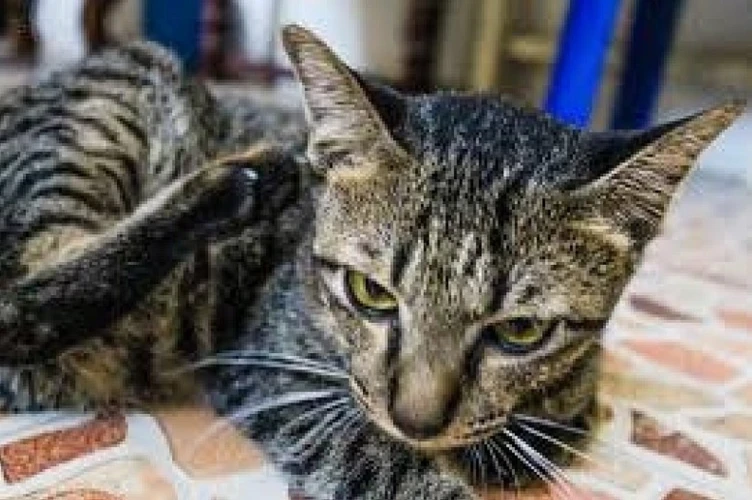
Ensuring your California Spangled has a balanced diet is crucial for their overall health and well-being. A balanced diet provides numerous benefits that can improve your feline friend’s quality of life. From healthy weight management to a shiny coat and boosted immune system, the advantages of a balanced diet cannot be overstated. Let’s take a closer look at the benefits your California Spangled can reap from a nutritious and balanced diet.
Healthy Weight Management
Maintaining a healthy weight for your California Spangled is crucial for their overall well-being. An unbalanced diet can result in obesity, which can lead to various health problems such as diabetes, joint issues, and even premature death. Here are some ways a balanced diet can help with healthy weight management:
- Provides Necessary Nutrients with Fewer Calories: A balanced diet ensures that your cat is getting all the essential nutrients they need while avoiding excessive calories. By providing high-quality proteins, healthy fats, and complex carbohydrates, your cat’s body can function optimally without the need for excess calories.
- Helps Control Portions: One of the most effective ways to manage your cat’s weight is by controlling their portion sizes. With a balanced diet, you can easily measure the appropriate amount of food your cat needs to consume based on their size, age, and activity level.
- Prevents Overeating: Cats, like humans, can develop a habit of overeating or emotional eating. By following a balanced diet, you can provide your cat with the right amount of food and nutrients they need without giving them access to excess food, which can lead to overeating.
- Encourages Regular Exercise: A balanced diet encourages regular exercise by providing energy and the necessary nutrients for physical activity. Your cat is more likely to engage in physical activity if they have a healthy weight as it makes running and jumping less strenuous.
- Reduces the Risk of Health Complications: Obesity in cats can cause numerous health complications that can not only impact their quality of life but also shorten their lifespan. By managing your cat’s weight effectively, you can reduce the risk of health problems and ensure they live a long and healthy life.
It is crucial to provide your California Spangled with a nutrient-dense, balanced diet to maintain a healthy weight. A balanced diet can help control portion sizes, encourage regular exercise, and reduce the risk of health complications, ultimately leading to a happier and healthier life for your furry friend.
Improved Digestive Health
A balanced diet plays a vital role in maintaining your California Spangled’s digestive health. It ensures that your cat receives the right nutrients in the right amounts, which allows for better digestion, absorption, and utilization of nutrients. Here are some of the ways that a balanced diet can improve your furry friend’s digestive health:
1. Decreased Risk of Digestive Problems: A balanced diet with high-quality ingredients can help prevent digestive issues such as constipation, diarrhea, and vomiting. Foods that contain probiotics and prebiotics can help regulate gut flora and promote healthy digestion.
2. Better Nutrient Absorption: When your cat’s diet contains the right balance of proteins, fats, carbohydrates, vitamins, and minerals, the nutrients are absorbed more effectively through the digestive tract. This is especially important for older cats, who may have a decreased ability to absorb certain nutrients.
3. Promotes Regular Bowel Movements: A balanced diet can improve bowel regularity, helping your cat maintain healthy bowel movements. This is key to prevent constipation or diarrhea which could lead to dehydration, discomfort, and other issues.
4. Reduced Risk of Hairballs: Hairballs are a common issue in cats, but incorporating a balanced diet in your cat’s routine can help reduce the risk of hairball formation. A balanced diet ensures that your cat gets enough fiber to help pass hair through their intestines and avoid accumulation in their stomach.
5. Improved Overall Health: A well-balanced diet can have a positive impact on your cat’s overall health. It can help maintain healthy weight, support the immune system, and reduce the risk of obesity and related complications such as diabetes and liver issues.
By providing your California Spangled with a balanced diet, you can help maintain their digestive health, which in turn has a positive impact on their overall well-being.
Boosted Immune System
A properly balanced diet for your California Spangled cat can do wonders for its overall health. One of the key benefits of such a diet is a boosted immune system, which can help your feline friend stay healthy and avoid various illnesses. Here are some ways in which a balanced diet can strengthen your cat’s immune system:
- Proper nutrient intake: A balanced diet ensures that your cat gets all the necessary nutrients, including vitamins and minerals, which are essential for a strong immune system. Vitamins such as A, C, and E, and minerals such as zinc and selenium, are important for supporting immunity.
- Reduced inflammation: Chronic inflammation can weaken the immune system over time. A balanced diet that is high in antioxidants and omega-3 fatty acids can help reduce inflammation and boost the immune system. Antioxidants such as beta-carotene and polyphenols, found in fruits and vegetables, can help neutralize harmful free radicals that can damage cells and tissues.
- Gut health: The gut microbiome plays a crucial role in the immune system. A balanced diet that is high in fiber and probiotics can help promote a healthy gut microbiome, which in turn can boost the immune system. Probiotics, found in yogurt and other fermented foods, can help increase the number and diversity of beneficial gut bacteria.
- No harmful additives: Low-quality cat food often contains harmful additives such as preservatives, artificial colors, and flavors. These additives can cause inflammation and weaken the immune system. By feeding your cat high-quality cat food that contains natural ingredients, you can avoid these harmful additives and support your cat’s immune system.
Ultimately, feeding your California Spangled cat a balanced diet that is high in nutrients, antioxidants, and probiotics, and free from harmful additives, can help boost its immune system and keep it healthy and happy for years to come.
Shiny Coat and Healthy Skin
Feeding your California Spangled a balanced diet can help ensure their coat stays shiny and their skin stays healthy. This is important since their coat is a defining feature of the breed and adds to their beauty. A healthy coat and skin also reflect good overall health.
Proper Nutrition for a Healthy Coat and Skin
Nutrients play a big role in maintaining healthy skin and coat for your California Spangled. Some of the most important nutrients for your cat’s skin and coat include:
| Nutrient | Function | Source |
|---|---|---|
| Protein | Helps build and repair skin and hair cells | Meat, poultry, fish, eggs |
| Fatty Acids | Provide moisture to skin and keep coat shiny | Salmon, sardines, flaxseed, eggs, chicken fat |
| Vitamin A | Keeps skin healthy and helps with new cell growth | Liver, sweet potato, carrot, pumpkin |
| Vitamin E | Protects skin from damage caused by free radicals | Almonds, sunflower seeds, spinach, broccoli |
| Biotin | Helps maintain a healthy coat | Egg yolks, liver, salmon, avocado |
Signs of a Healthy Coat and Skin
A shiny coat and healthy skin is a great indicator of a cat’s overall health and well-being. Signs of a healthy coat include:
- Shiny and lustrous
- Soft to the touch
- Free of dandruff and flakes
- Not overly oily or dry
- No bald patches or sores
If you notice any changes in your California Spangled’s coat or skin, such as excessive itching or flaking, it’s important to consult with your veterinarian to rule out any underlying health conditions.
A balanced diet that is rich in protein, fatty acids, and essential vitamins and minerals can help improve your California Spangled’s coat and skin health. By providing your cat with the proper nutrition, you can help keep them looking and feeling great for years to come.
Creating a Balanced Diet for Your California Spangled
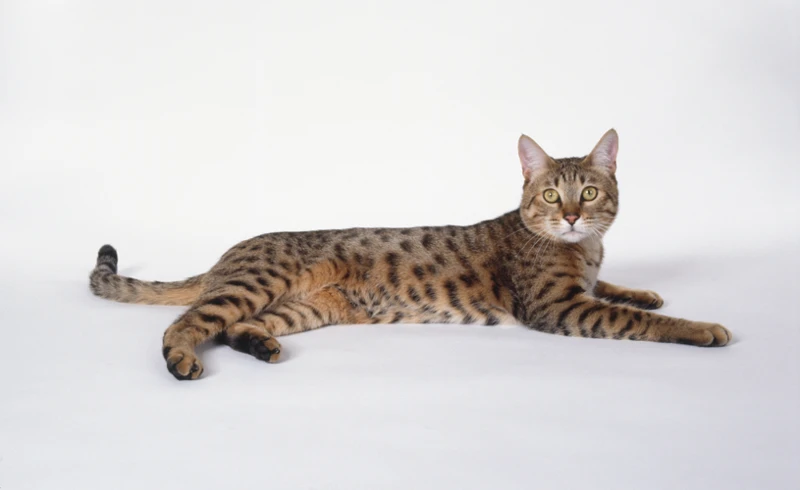
As a pet owner, you play an important role in ensuring the health and well-being of your California Spangled cat. One of the best ways to do this is by providing them with a balanced diet. But what exactly does that mean for your feline friend? In this section, we will explore some key steps to help you create a balanced diet for your California Spangled cat. From consulting with a veterinarian to paying attention to portion sizes, these tips will help you keep your furry friend healthy and happy.
Consult with a Veterinarian
Consulting with a veterinarian is the first step to ensuring your California Spangled cat has a balanced diet. A veterinarian will be able to assess your cat’s specific dietary needs and recommend the best course of action. Here are some things to keep in mind during the consultation:
- Provide Your Cat’s Medical History: Be sure to bring your cat’s medical records to the vet. This includes any past surgeries, illnesses, or allergies.
- Share Your Cat’s Eating Habits: Let your vet know your cat’s eating habits, including the brand of cat food, how much and how often your cat eats, and if your cat has a tendency to overeat.
- Discuss Your Cat’s Lifestyle: Your cat’s lifestyle will also play a role in determining their dietary needs. For instance, if your cat is an outdoor cat, they may require more food than an indoor cat, or if your cat is older or has mobility issues, they may have specific dietary requirements.
- Ask for Recommendations: Based on the information you provide, your vet may recommend a specific type of cat food or provide guidelines for creating a balanced diet for your cat.
Remember, every cat is unique, so it’s important to take your cat’s individual needs into consideration when creating a balanced diet. By consulting with a veterinarian, you can ensure that your California Spangled is getting the proper nutrition and living a healthy, happy life.
Look for High-Quality Cat Food
When it comes to providing a balanced diet for your California Spangled, the quality of cat food you choose is crucial. Look for high-quality cat food that meets the nutritional requirements of your cat. Here are some things to keep in mind when choosing cat food:
- Check the ingredients: The ingredients list should include high-quality proteins and limited carbohydrates, such as lean meats like chicken or fish, and vegetables.
- Avoid filler ingredients: Look for cat food that has minimal filler ingredients such as corn or wheat, which provide little nutritional value for your cat.
- Choose age-specific food: Depending on your cat’s age, you may need to choose age-specific cat food. Kittens need more calories and protein, while senior cats may benefit from a lower calorie diet.
- Consider health issues: Cats with specific health conditions may require specialized diets. Consult with your veterinarian to determine if your cat needs a special diet.
- Avoid artificial additives: Avoid cat food that contains artificial colors, flavors, or preservatives that could potentially harm your cat in the long run.
Choosing high-quality cat food is paramount to ensuring that your California Spangled receives the proper nutrition they need to stay healthy and happy. Take the time to read ingredient labels and consult with a veterinarian if you have any concerns.
Pay Attention to Portion Sizes
It is important to pay attention to portion sizes when creating a balanced diet for your California Spangled. Overfeeding or underfeeding can lead to both short-term and long-term health problems. By following the guidelines below, you can ensure that your cat is receiving the appropriate amount of food for their age, weight, and activity level.
Guidelines for Portion Sizes:
| Age | Amount of Food |
| Kitten (0-4 Months) | 3-4 small meals a day of kitten-specific wet or dry food |
| Junior (4-12 Months) | 3 meals a day of kitten-specific wet or dry food |
| Adult (1-6 Years) | Twice a day feeding of adult-specific wet or dry cat food. About 200-250 kcal per day. |
| Senior | 2-3 small meals a day of senior-specific wet or dry cat food, depending on activity level and any age-related health conditions. Approximately 200-250 kcalper day |
It is important to note that these guidelines are just starting points and feeding recommendations should be adjusted based on the individual cat’s needs. Factors like activity level, body composition, and overall health should all be taken into consideration when determining portion sizes.
Additionally, it is crucial to measure your cat’s food rather than just eyeballing it, as this can lead to overfeeding. Using a measuring cup or kitchen scale can ensure that you are providing the correct amount of food.
By paying attention to portion sizes, you can help ensure that your California Spangled maintains a healthy weight, which is crucial for overall health and longevity.
Incorporate Treats in Moderation
Feeding treats to your California Spangled is a great way to show them love and appreciation. However, it is important to do so in moderation, as excessive treats can lead to obesity and other health issues. When choosing treats, opt for high-quality options that are designed specifically for cats and avoid giving them human food.
Table: Recommended Treats for Your California Spangled
| Treat Type | Benefits | Recommended Brands |
|---|---|---|
| Freeze-dried meat treats | High in protein and low in carbohydrates | Stella & Chewy’s, Primal Pet Foods |
| Catnip treats | Stimulating and entertaining for cats | Pet Naturals of Vermont, Yeowww! Catnip |
| Dental treats | Helps clean teeth and freshen breath | Temptations, Greenies |
| Grain-free treats | Easy to digest and ideal for cats with dietary sensitivities | Blue Buffalo, Wellness |
It is also important to pay attention to the serving size and calorie content of treats. As a general rule, treats should not make up more than 10% of your cat’s daily calorie intake. Overfeeding treats can lead to weight gain and other health issues, so it is important to be mindful of how many treats you give your cat.
In addition to choosing high-quality treats, it is important to incorporate them into a balanced diet. Too many treats can lead to a calorie imbalance and missing out on essential nutrients. As always, consult with your veterinarian to ensure that the treats you are giving your California Spangled are appropriate for their individual health needs.
Provide Fresh Water at all times
It’s incredibly important to make sure your California Spangled has access to fresh water at all times. The amount of water your cat needs will depend on a few factors, such as their diet, activity level and even the climate you live in.
Here are a few tips to make sure your cat stays hydrated:
- Give your cat their own water dish.
- Choose a bowl that’s the right size for your cat.
- Make sure the bowl is cleaned regularly.
- Consider using a water fountain for cats, as some cats prefer moving water.
- Place water dishes in various locations around the house, so your cat always has access to water, no matter where they are.
- During warmer months or in hotter climates, make sure you change your cat’s water frequently to prevent any bacteria growth.
By keeping your cat hydrated, you’ll help maintain their overall health and wellbeing. Dehydration can lead to kidney problems, constipation and even urinary tract infections. So, always make sure you’re providing your beloved feline with plenty of fresh water to drink.
What to Avoid in Your California Spangled’s Diet
As much as it is important to provide your California Spangled with a balanced diet, it is equally important to pay attention to what should not be a part of their diet. Some foods can be harmful and even toxic to your feline friend, causing various health issues and discomforts. It’s crucial to be aware of these foods and avoid them as much as possible. In this section, we will discuss the foods and ingredients that you need to keep away from your California Spangled’s diet.
Human Food
Feeding your California Spangled human food can be tempting, especially when they are begging for a bite of what you are eating. However, it is important to resist this temptation as human food may not meet the nutritional requirements of your feline friend. In fact, human food can be harmful and even toxic to cats.
Common human foods that are dangerous for cats include:
| Food | Why it’s harmful |
| Chocolate | Contains theobromine, which can cause vomiting, diarrhea, heart problems, seizures, and in severe cases, even death. |
| Grapes and raisins | Can cause kidney failure. |
| Onions and garlic | Can damage red blood cells and lead to anemia. |
| Alcohol | Can be toxic and even deadly to cats. |
| Caffeine | Stimulates a cat’s nervous system and can cause restlessness, rapid breathing, heart palpitations, muscle tremors, and even death. |
| Fatty, fried, and spicy foods | Can cause stomach upset, vomiting, diarrhea, and pancreatitis. |
| Bones | Can splinter and cause choking, blockages, or tears in a cat’s digestive system. |
It is best to avoid feeding your California Spangled human food altogether. Instead, opt for high-quality cat food that is specifically formulated to meet their nutritional needs. If you ever suspect that your cat has accidentally ingested something harmful, it is important to seek veterinary care immediately.
Low-quality Cat Food
When it comes to your California Spangled’s diet, the quality of their cat food is incredibly important. It’s crucial to avoid low-quality cat food options that are often filled with harmful ingredients.
Low-quality cat food can be defined as food that is made with poor-quality ingredients and lacks nutrients that are essential for your cat’s health. These types of cat food often contain fillers such as grains, which have little to no nutritional value for your cat.
Some of the most common harmful ingredients found in low-quality cat food include:
| Ingredient | Potential Harm |
|---|---|
| Meat By-Products | Low-quality source of protein, often contain animal parts that aren’t fit for human consumption |
| Corn and Wheat Gluten | Fillers that can cause digestive issues and contribute to weight gain |
| BHA, BHT, and Ethoxyquin | Preservatives that have been linked to cancer and other health problems |
| Artificial Colors and Flavors | Have no nutritional value and can cause allergic reactions |
Consuming low-quality cat food can lead to a range of health problems for your California Spangled, including obesity, digestive problems, and a weakened immune system. Many of the harmful ingredients found in low-quality cat food have been linked to serious health problems such as cancer, kidney disease, and liver damage.
To ensure your cat’s health and well-being, always choose high-quality cat food that is made with nutritious ingredients and is free from harmful additives and preservatives. Your cat deserves the best possible diet, and choosing high-quality cat food is an important step in ensuring their good health and longevity.
Excessive Treats and Snacks
As much as our California Spangled cats love treats and snacks, it is important to control the amount that they consume. Excessive treats and snacks can lead to obesity, dental problems, and other health issues. When choosing treats for your cat, make sure they are specifically designed for cats and are high-quality. Many cat treats on the market contain high levels of carbohydrates and fillers, which can be detrimental to your cat’s health if consumed excessively.
To avoid excessive treats and snacks, it is recommended to set a limit on the number of snacks your California Spangled can have in a day. An average healthy cat should not consume more than 10% of its daily calories from treats and snacks.
To further avoid overfeeding your cat with treats, you can use a treat-dispensing toy or puzzle feeder to keep them entertained while also controlling the amount they are consuming. This can also provide mental stimulation for your cat, which is important for their overall well-being.
Below is a table showing some examples of high-quality cat treats that can be given occasionally, in moderation:
| Treat | Benefits |
|---|---|
| Freeze-dried meat treats | High protein content and minimal carbohydrates, good for cats with a low appetite |
| Catnip | Can provide mental stimulation and a calming effect on cats |
| Dehydrated fish treats | High in proteins and healthy fats, good for cats with skin problems |
| Grain-free dental treats | Can help promote dental health by removing plaque and bad breath |
Remember, treats should never replace a balanced diet. A balanced diet that meets all of your California Spangled’s nutritional needs should be their main source of food. Treats and snacks should be limited to occasional rewards for good behavior or for some special bonding time with your beloved feline companion.
Raw Meat and Fish
It may seem like a treat to feed your California Spangled raw meat or fish, but it can actually be dangerous for their health. Raw meat and fish can contain harmful bacteria, such as salmonella and E.coli, that can cause your cat to become sick.
Raw fish contains an enzyme called thiaminase that breaks down thiamine, an essential B vitamin that helps your cat maintain their nervous system. A lack of thiamine can lead to neurological problems.
It’s important to note that cooking the meat or fish can kill the harmful bacteria and enzyme, but it’s still not recommended to incorporate raw options into your cat’s diet.
Instead, stick to high-quality, commercially prepared cat food that has been formulated to meet your cat’s nutritional needs. If you’re looking to enhance their diet, talk to your veterinarian about adding in supplements or specific foods that are safe and beneficial for your furry friend.
Here’s a table summarizing the dangers of feeding your California Spangled raw meat and fish:
| Dangers of Raw Meat and Fish for California Spangled |
| Can contain harmful bacteria |
| Raw fish contains an enzyme that breaks down thiamine |
| Can lead to neurological problems |
| Commercially prepared cat food is a safer option |
| Talk to your veterinarian before making significant changes to your cat’s diet |
Feeding your California Spangled a balanced and nutritious diet is crucial for their health and well-being. By avoiding raw meat and fish and opting for high-quality cat food, you’ll be providing your furry friend with the essential nutrients they need for a long and healthy life.
Unbalanced Homemade Diets
As much as we love to cook for ourselves and our pets, it’s important to be aware of the potential dangers of feeding our California Spangled homemade diets. If you’re not careful, homemade diets can be unbalanced and lack essential nutrients for your cat’s overall health.
The Risks of Unbalanced Homemade Diets
If your homemade diet isn’t properly balanced, your cat may not be getting the nutrients they need to thrive. Some of the risks associated with unbalanced homemade diets include:
| Risk | Description |
|---|---|
| Malnutrition | If your cat isn’t getting enough of certain nutrients, they can become malnourished over time. This can lead to a range of health problems. |
| Weight Issues | Unbalanced homemade diets can cause your cat to become overweight or underweight, depending on the nutrient deficiencies present in their diet. |
| Digestive Problems | If your cat’s diet is unbalanced, they may experience digestive problems like diarrhea, vomiting, or constipation. |
| Immune System Suppression | If your cat isn’t getting enough key nutrients, it can suppress their immune system, leaving them more vulnerable to illnesses and infections. |
How to Avoid Unbalanced Homemade Diets
If you want to feed your California Spangled a homemade diet, it’s important to do so with caution. You can avoid unbalanced homemade diets by:
- Consulting with a veterinarian or veterinary nutritionist to create a balanced recipe that meets your cat’s specific nutritional needs.
- Using high-quality ingredients and avoiding fillers or by-products.
- Monitoring your cat’s weight and overall health regularly.
- Providing a balanced commercial cat food as a backup or supplement to your homemade diet.
By taking these precautions, you can reduce the risk of an unbalanced homemade diet and ensure that your California Spangled is getting the nutrition they need to lead a healthy, happy life.
Conclusion
In conclusion, feeding your California Spangled a balanced diet is crucial for their overall health and well-being. Providing them with the right nutrients in the right amounts can help prevent various health issues and help them maintain a healthy weight.
It’s important to remember that a balanced diet consists of a variety of proteins, fats, carbohydrates, vitamins, and minerals. While there are many high-quality cat foods available on the market, it’s always best to consult with your veterinarian to determine the best diet for your individual cat’s needs.
In addition to feeding your cat a balanced diet, it’s important to avoid certain foods and treats that can be harmful to their health. Human food, low-quality cat food, and raw meats and fish should be avoided, as well as any unbalanced homemade diets.
By taking the time to properly feed your California Spangled, you can ensure that they live a long and healthy life. Remember to provide them with plenty of fresh water and always pay attention to portion sizes. Your cat will thank you for it in the form of improved overall health and a shiny, healthy coat.
Frequently Asked Questions
1. What is a California Spangled Cat?
California Spangled Cats are a rare breed with a spotted coat. They are elegant, athletic, and intelligent companions. They were first bred in the 1980s in California, with an aim to resemble wild cats like leopards and ocelots in appearance.
2. How often should I feed my California Spangled Cat?
You should feed your California Spangled Cat at least twice a day. It’s crucial to maintain a consistent feeding schedule to ensure that your cat receives an adequate supply of nutrients.
3. What kind of protein should I look for in cat food for my California Spangled?
High-quality cat food for California Spangled Cats should have animal-based protein sources such as chicken, turkey, or beef. The protein should be the primary ingredient on the cat food label.
4. Can I feed my California Spangled Cat a vegetarian diet?
No, you should not feed your California Spangled Cat a vegetarian diet. Cats require a meat-based diet as their digestive system is designed to process animal protein for vital nutrients. A vegetarian diet may cause malnutrition and health problems for your cat.
5. Does my California Spangled Cat need supplements?
Most cats do not need supplements if they are eating a balanced diet. However, your veterinarian may prescribe supplements if your cat has specific health conditions or deficiencies.
6. Should I free-feed my California Spangled Cat?
No, free-feeding your California Spangled Cat may lead to overeating and obesity. It’s best to provide measured meals at the same time every day and limit treats to maintain a healthy weight.
7. Can I give my California Spangled Cat dairy products?
No, it’s not recommended to give your California Spangled Cat dairy products. Most cats are lactose intolerant, meaning they cannot digest lactose, which can cause diarrhea and upset stomachs.
8. How can I tell if my California Spangled Cat is overweight?
You can tell if your California Spangled Cat is overweight by feeling their ribcage. If you have trouble feeling their ribs, your cat may be overweight. You can also ask your veterinarian to assess your cat’s weight.
9. What are some signs of a nutrient deficiency in California Spangled Cats?
Some signs of nutrient deficiencies in California Spangled Cats include weight loss, lethargy, dry skin, and dull coats. You should consult your veterinarian if you notice any of these symptoms in your cat.
10. Can I make homemade food for my California Spangled Cat?
You can make homemade food for your California Spangled Cat, but you need to ensure that it’s nutritionally balanced. Poorly balanced homemade diets may cause health problems and deficiencies. Consult your veterinarian before making any dietary changes.

